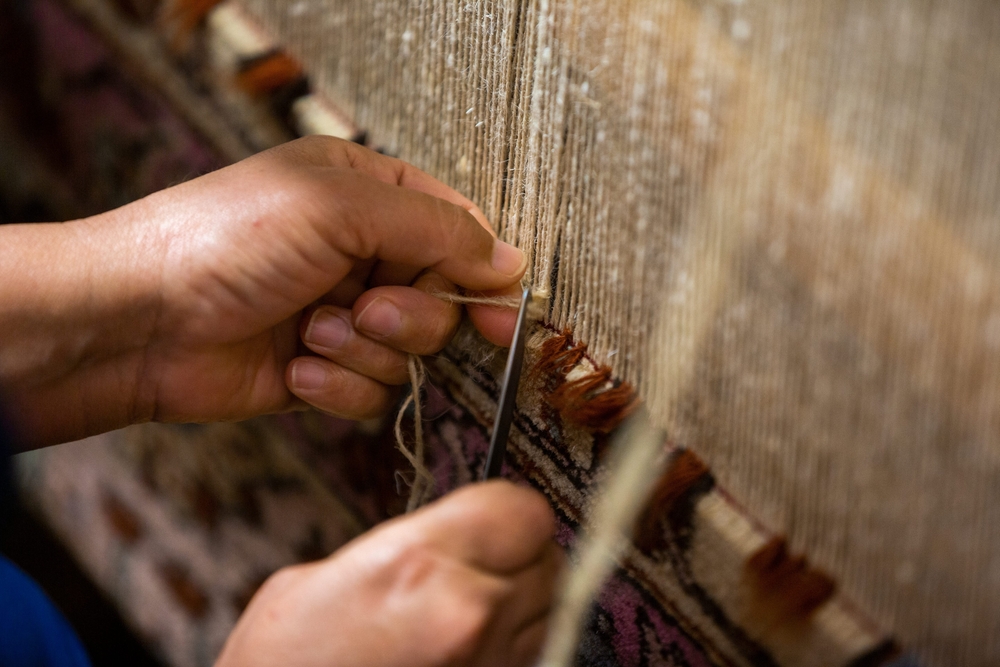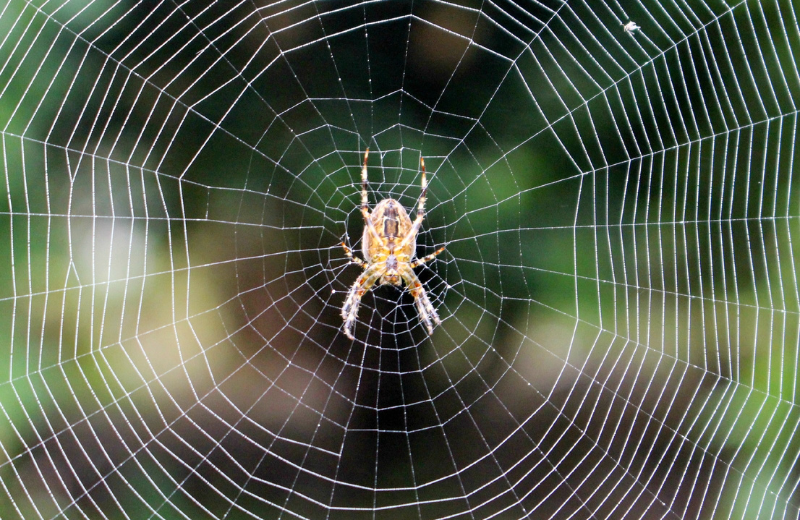In Greek mythology, Arachne's story has fascinated and puzzled many, as it blends themes of talent, pride, and divine punishment. Let’s explore the fascinating story of Arachne, her powers, symbols, and the lessons her myth has imparted across generations.
Jump to:
Recommended for you!
Best SellersThe Story of Arachne
Arachne was a mortal woman with extraordinary weaving skills. She lived in Lydia, a region of Ancient Greece, and quickly gained a reputation as the finest weaver in the land. Her work was admired far and wide for its technical perfection and for the sheer beauty of her intricate designs.
People would travel from all over to witness her talent, and soon Arachne’s confidence in her abilities grew. This confidence, however, gradually turned into hubris—a dangerous quality in Greek mythology.
A Challenge to the Goddess Athena
Arachne’s pride soon led her to make a bold and fateful declaration: she claimed that her weaving skills surpassed those of Athena, the goddess of wisdom and crafts. To put this into perspective, Athena was also the deity who presided over the art of weaving. In the eyes of the Greeks, Arachne’s statement was not just arrogant—it was sacrilegious.
Word of Arachne’s boast quickly reached Athena, who decided to confront the mortal weaver. Disguised as an old woman, Athena visited Arachne and warned her to be humble and respectful to the Olympian gods. However, Arachne refused to heed the warning and insisted on proving her superiority in a weaving contest. With her pride on full display, she challenged Athena to see who could create the most beautiful tapestry.
The Weaving Contest
The competition began, and both Arachne and Athena wove tapestries of astonishing beauty. Athena’s work depicted scenes glorifying the gods and illustrating the consequences of mortals who dared defy divine authority. Arachne, on the other hand, chose to highlight the gods’ cruelty and misdeeds—portraying them as flawed and vengeful beings. Her craftsmanship was flawless, and even Athena could not find fault in the quality of her work.
Athena’s Wrath and Arachne’s Punishment
While Arachne’s weaving was technically perfect, her choice of subject matter angered Athena. Infuriated by the disrespectful scenes, Athena tore Arachne’s tapestry to shreds and struck her down. Overwhelmed by shame and despair, Arachne hung herself.
Yet the story does not end there. Moved by pity—or perhaps a desire to immortalise Arachne's talent—Athena transformed her into a spider, condemning her to weave for all eternity. This is how, according to Greek mythology, the first spider was born, and Arachne became forever associated with the craft she loved.
Powers and Skills of Arachne

Although Arachne was a mortal, her talent for weaving was almost supernatural. Her ability to create stunningly intricate patterns and scenes on her loom was unmatched. She had a gift that was considered both a blessing and a curse—an extraordinary skill that brought her fame but also led to her downfall.
While Arachne did not have divine powers, the transformation she underwent was a powerful symbol. Her punishment by Athena turned her into a creature that embodies patience, precision, and artistry. Spiders in Greek mythology, therefore, are often viewed as weavers, tirelessly creating their webs in a manner reminiscent of Arachne’s weaving.
Symbols Associated with Arachne

The spider is the most significant symbol associated with Arachne. It represents both the beauty and the peril of overreaching ambition. In various cultures, spiders have been seen as weavers of fate and destiny, which ties back to Arachne’s story. Her myth serves as a reminder of the thin line between confidence and hubris.
Additionally, the loom and the act of weaving are powerful symbols in Arachne’s tale. Weaving was not just a practical skill in Ancient Greece; it was an art form imbued with cultural and spiritual meaning. Through Arachne’s contest with Athena, weaving becomes a metaphor for the creative power and potential consequences of human artistry.
The Moral of the Story

So, what lessons does the myth of Arachne teach us? The story warns against excessive pride and the danger of comparing oneself to the gods. In Greek culture, hubris—an overestimation of one’s own abilities and a lack of respect for the divine—was seen as a serious moral failing. Arachne’s punishment was not just about her disrespect toward Athena but also a broader lesson about the importance of humility.
The tale also speaks to the theme of divine justice, a recurring motif in Greek mythology. While Arachne was immensely talented, her inability to recognise the limits of her mortality led to her downfall. It’s a timeless message about the importance of respecting forces greater than yourself.
Connections to Other Myths
Arachne’s story shares similarities with other cautionary tales in Greek mythology, such as the story of Icarus, who flew too close to the sun, and the fate of Medusa, who was also punished by Athena. Both myths revolve around themes of pride, punishment, and the delicate balance between human ambition and divine will.
Recommended for you!
Best SellersFrequently Asked Questions About Arachne
What Does the Name Arachne Mean?
The name “Arachne” comes from the Greek word for “spider.” This name has become the root for terms like “arachnid,” which refers to the class of animals that includes spiders. Her transformation into a spider symbolically connects her name to her fate.
Is Arachne the Mother of All Spiders?
In a mythological sense, Arachne is often considered the mother of all spiders, as her transformation marked the origin of these creatures. Her story has since been used to explain the existence of spiders and their weaving instincts.
Are Medusa and Arachne Related?
While there’s no direct connection between Medusa and Arachne, both figures suffered punishment from Athena. Medusa was turned into a monster with snakes for hair, while Arachne became a spider. These myths highlight Athena’s role as a goddess who fiercely protects her honour and the sanctity of divine gifts.
Was Arachne Mortal or Immortal?
Arachne was a mortal woman. Unlike gods or demigods, she did not possess any divine powers. Her talent in weaving was exceptional, but it was entirely human in nature. Her mortality is an important part of the myth, as it highlights the vulnerability of humans when they challenge the divine.
Did Arachne Have a Lover?
There is no mention of Arachne having a lover in the traditional versions of the myth. Her story focuses primarily on her weaving talent, pride, and conflict with Athena. The myth does not delve into her personal life or romantic relationships, as the narrative is centred around the themes of talent, hubris, and divine punishment.
Is Arachne Considered a Villain or a Hero?
Arachne is not typically portrayed as a villain or a hero in Greek mythology. Instead, she serves as a cautionary figure. Her story is a moral lesson about the dangers of pride and the consequences of challenging the gods. Depending on your perspective, she can be seen as a tragic figure whose immense talent was both a gift and a curse.
Study Greek Mythology for £29
Arachne’s myth reminds us of the fine line between confidence and arrogance, the value of humility, and the timeless allure of Greek mythology. If you’d like to learn more about these myths and explore the characters, symbols, and stories that have shaped Western culture, consider enrolling in the Greek Mythology Diploma Course with Centre of Excellence. For a limited time, you can access the course at a discounted price of £29!













